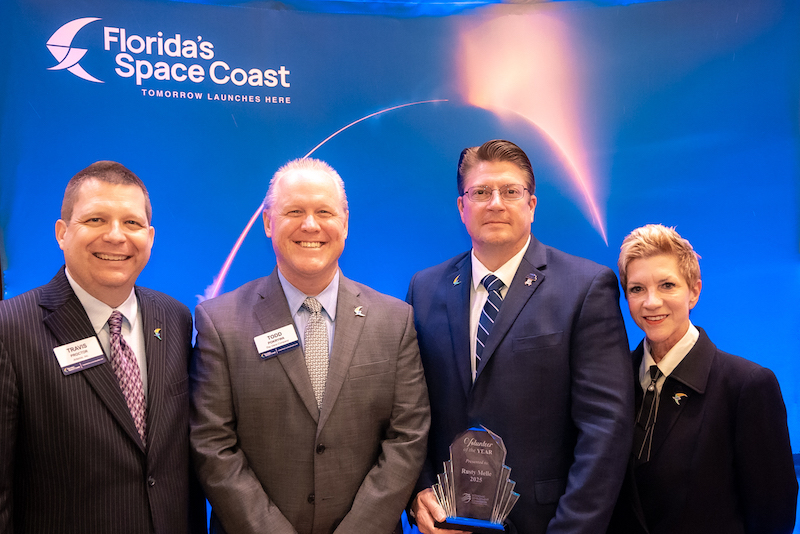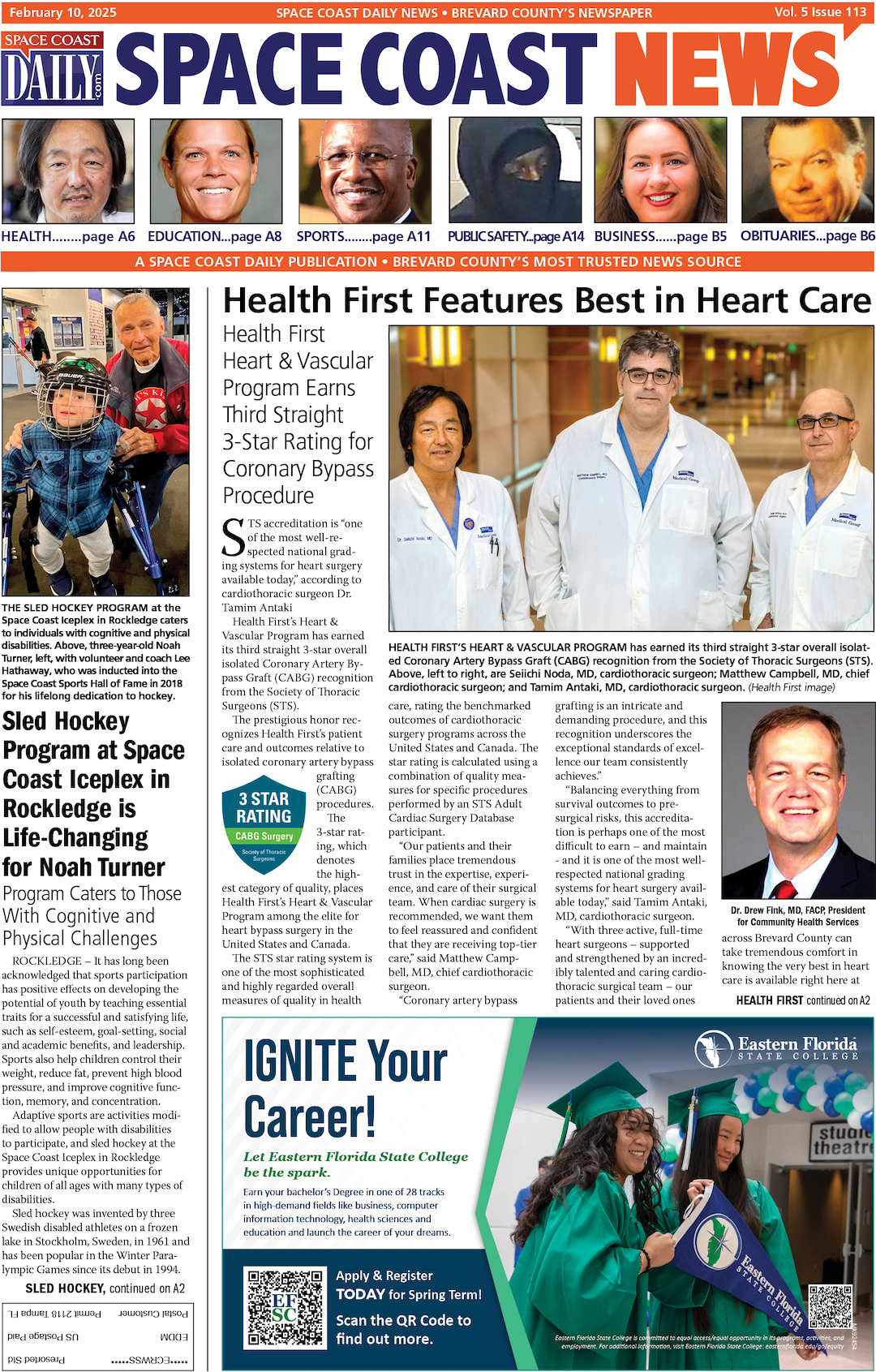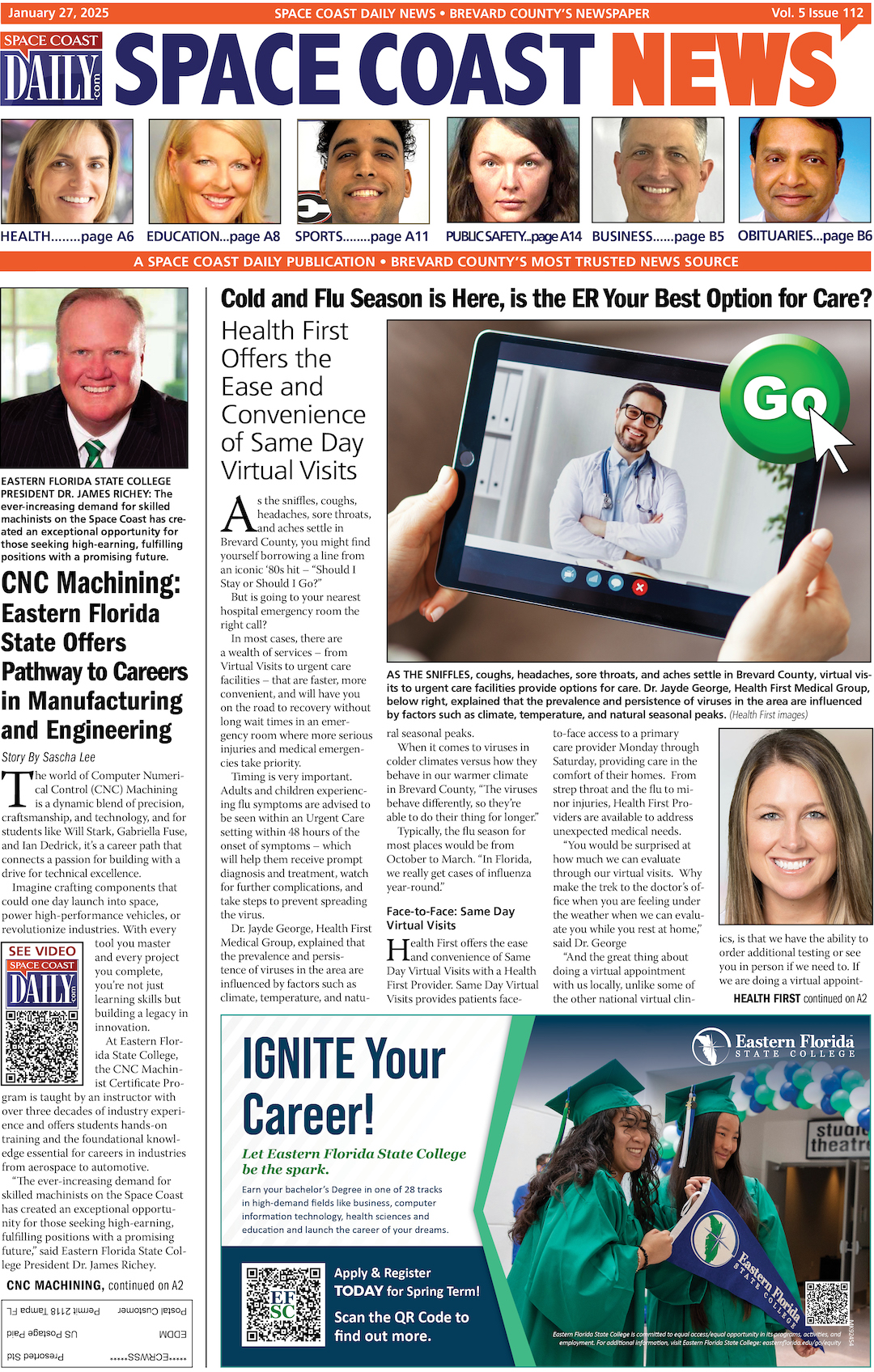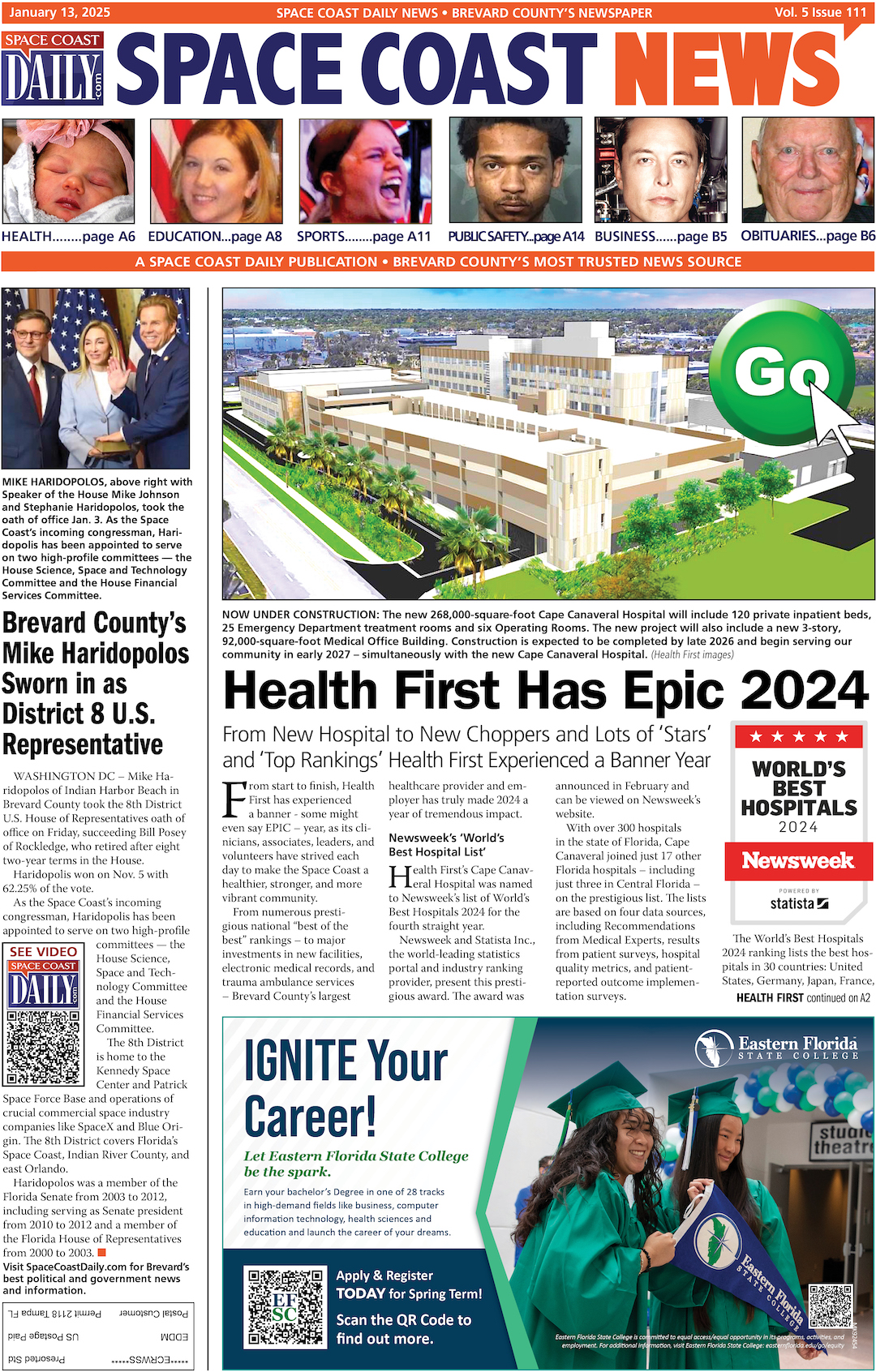Two Health First Associates Got Life-Saving Organ Transplants; Today, They’re Dedicated to Caring for Others
By Space Coast Daily // May 22, 2024
MEDICAL SPOTLIGHT
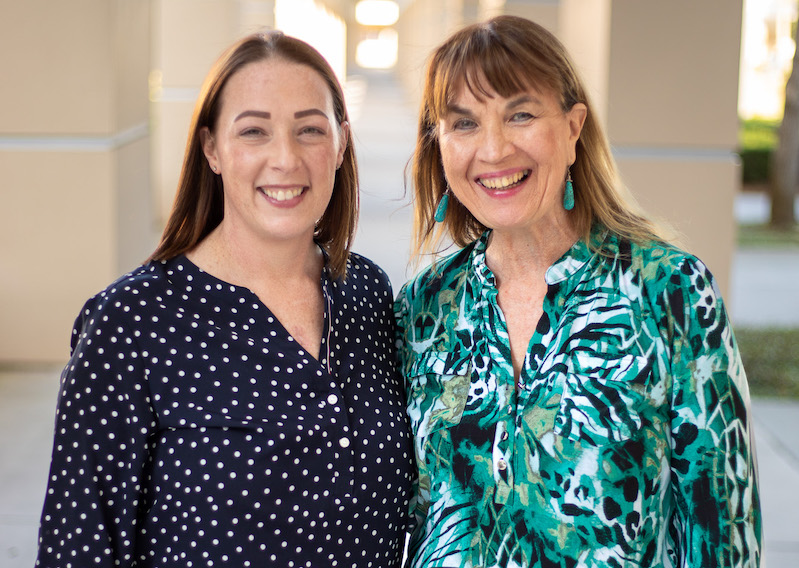
Thirty years apart, Health First Associates Tina Waggoner and Jamie Phillips have incredible organ donation stories, and this message: They’re proof it works, and it ripples into the lives of those they help.
BREVARD COUNTY • FLORIDA – One is less than sixteen months out from a life-saving organ transplant. Another had her transplantation more than 30 years ago. Both are Brevard County-based Health First associates, and although their organ transplantation journeys are very different, their message is the same: organ donation is the ultimate gift that continues to give.
Registered nurse Jamie Phillips is new to the Space Coast, having moved from West Virginia nearly six months ago to join Health First’s Holmes Regional Medical Center as an infection control practitioner.
She is a recent recipient of a heart and liver – kind of ironic, considering many of her years as a nurse were spent in a hospital ICU caring for just such organ recipients and donors. And although she struggled with health issues since childhood, she never imagined that she would one day be the recipient of an organ transplant.
“From a very young age I knew I was different from all the other kids. I couldn’t participate in a lot of activities because I would get so exhausted after just a short period of time. My knees and my hands would turn blue, and I’d have to sit down to catch my breath. On several occasions, I passed out with no explanation. Shortly after seeing a doctor, I found out that I was born with a congenital heart disease known as hypertrophic cardiomyopathy. I had my first open-heart surgery at the age of 9. I did pretty well from then on throughout high school and college. I was active in cheerleading, gymnastics and dance,” explained Phillips.
“When I turned 25, I had a permanent pacemaker and defibrillator placed as a precaution since a few of my family members had died suddenly from heart failure. For the next 15 years, the doctors basically treated me with medications. Eventually, in 2018, I was diagnosed with congestive heart failure (CHF), and as time went on, my heart function continued to decline.”
Working full-time through a series of health challenges in her early adult year, what Phillips thought would be a quick one-day hospital visit in 2022 turned into a long, 80-day journey. Physicians told Phillips she had months to live – unless she could undergo a heart and liver transplant.
“I was not expecting to hear that at that point in my life. I was in shock to say the least, and a lot of tears were shed. The waiting was probably the hardest part of the entire process. In the last 16 months I have come to find that I am actually one of the lucky ones. I didn’t have to sit at home by a phone waiting for the call wondering if it would ever come. I realize just how blessed I was that my journey was only 80 days.
A lot of thoughts went through my mind during that process: the uncertainty of not knowing how long I had to wait, how much worse can my condition get before I get better, or will I die before they find me a match?
My condition worsened to the point that I needed to be put on ECMO to prevent my kidneys from failing or else I would no longer be a candidate for transplant. The ECMO then put me at a priority-one status. Two days later on Oct 28, 2022, I received my amazing gifts.”
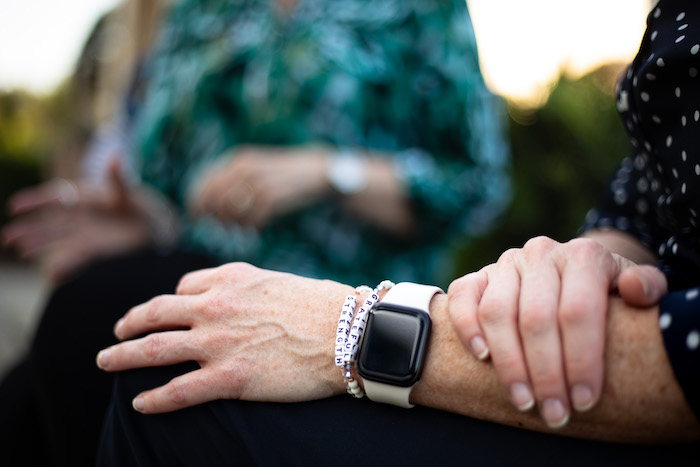
After the transplant, Phillips underwent 15 weeks of rigorous cardiac rehabilitation. No longer bound by the physical restrictions that held her back since childhood, she is able to accomplish previous tasks with ease and now looks forward to her new life and career on the Space Coast.
“I always wanted to be closer to family and to be near the water, so moving to Florida was the first thing on my bucket list. I plan to continue living my life taking adventures, being grateful for every moment, and having absolutely no regrets. I am here today because of a very generous donor. I have sent several letters to the family to express my gratitude. They have received them but are not quite ready to respond.
“I do remain hopeful that one day they will want to know about me and who I am, just as much as I want to know about my donor. Until then, I will enjoy my second chance at life in hopes of trying to bring some meaning to the loss of their loved one. Organ donation is perhaps the most selfless act a person can ever commit so that a total stranger may live to see another day.”
Tina Waggoner is a registered nurse and a senior systems analyst in the Radiology Department at Health First’s Cape Canaveral Hospital. A 35-year Health First associate, her journey also goes back decades to when she started experiencing bouts of lightheadedness, weakness and fatigue.
“I thought it was probably low blood sugar or whatever. Well, tests came back and showed that my kidney function was kind of out of whack. So, we did another round of tests – no change. So, after a process of elimination, we ended up doing a CT biopsy.
Diagnosis: renal failure.
“It was a rare disease that my doctor had seen but that there was no family history of,” recalled Waggoner.
“Here I was at the time, taking care of patients who are also experiencing dialysis and kidney failure, and I’m told that after a dizzy spell that I too am in renal failure. It was a shock, to say the least.”
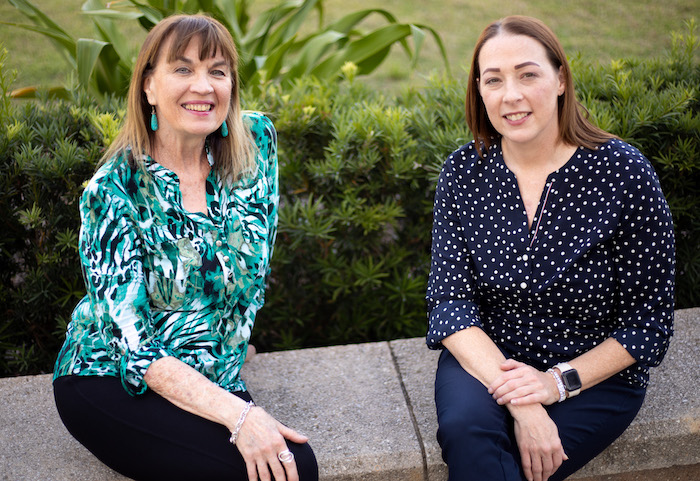
Initially, Waggoner controlled her symptoms through diet and lifestyle, watching what she ate and drank, monitoring her sodium and potassium intake. But over time with kidney failure, protein eventually begins leaking into the urine. Once that starts, kidney dialysis is the only option.
“I started dialysis three days a week and really tolerated it fairly well. I was still going into work every day as a nurse manager at Cape Canaveral HospitaI, and I remember getting to a point where I was so weak and tired I told my husband, ‘You know, I really think I’m going to die.’ He said, ‘No, you’re not, you’re the strongest person I’ve ever known – just hang in there.”
She didn’t have to hang in there long. It was just one day later that “the call” arrived.
“We drove up to Shands at the University of Florida to get the transplant. I thank God I’ve done very well in the days and years since my transplant. I’ve worked full time ever since my transplant, now working as a systems analyst in Radiology at Cape Canaveral Hospital.
“I’m extremely grateful for all of my co-workers at Health First and Cape Canaveral – they’ve all been very supportive of me, especially when we were dealing with COVID-19.”
To this day, Waggoner does not know the identity of her donor.
“I do know they came from Tampa. We have transplant coordinators who help us send letters to the donor family, and sometimes people get lucky enough to meet their donor families. I’ve written them numerous letters and told them that I’m a registered nurse, and not a day goes by I don’t think about the selfless act and generosity of their family member. I let them know I’m doing well and taking care of my kidney. It’s just the biggest gift that anyone can give and for a family to make that decision at such a difficult time to save another life – or lives. It’s just so hard to even define.”
Waggoner says that the treasured gift of life she received from that anonymous donor over 30 years ago requires a tremendous amount of maintenance and diligence. In fact, her transplant has far outlasted the average term.
“The clinicians at Shands tell me I’m one of the longest living kidney transplant recipients they’ve had. It’s very rare that a transplant organ lasts as long as mine has. But I’ve been extremely compliant, diligently watched my diet, kept up with my physician checkups – you go for four or more visits a year versus maybe one or two if you’re otherwise healthy. You can’t take most over-the-counter medications, and I’ve kept up with my prescribed Tier 4 medications for anti-rejection. It’s hard to believe I’m now at 30 years. It’s truly a lifetime commitment.”
Waggoner’s take home message is a simple one.
“Please don’t ever hesitate to become an organ donor. The whole sky opened up for me in one day. I’m living proof that it works, and I’ve been blessed to use the life and gift I’ve been given to help other people. I literally went from thinking I was dying to the next day having the opportunity to live a normal life
and help other people through their different care journeys.”
Visit HF.org/news to keep up on the latest at Health First.



